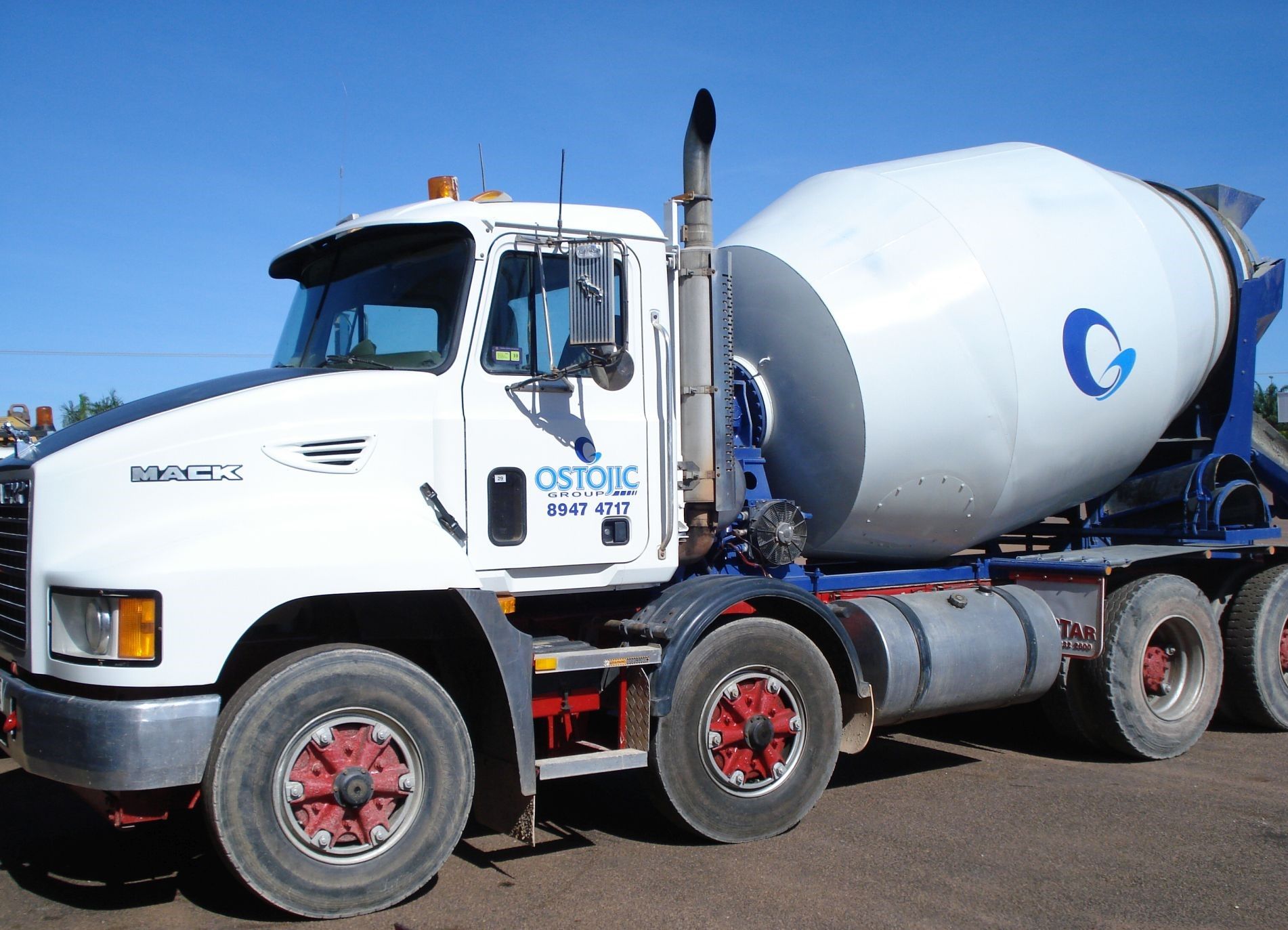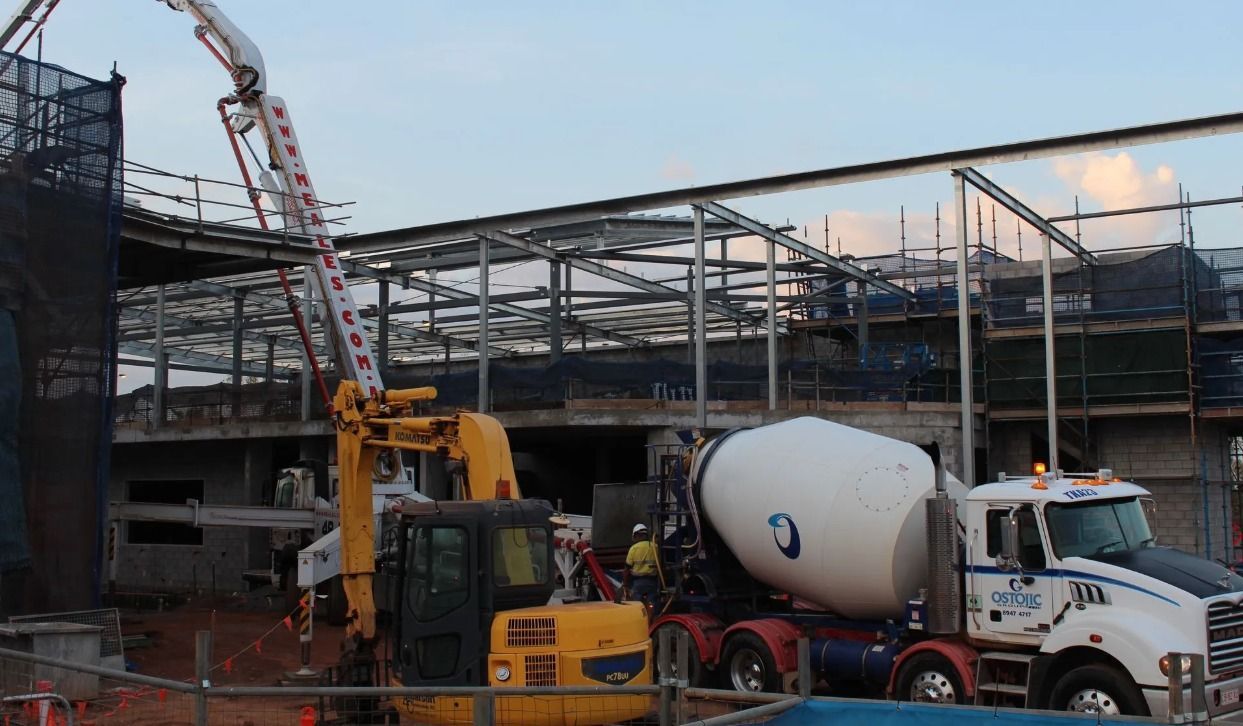Why Concrete is the Perfect Choice for Darwin’s Tropical Climate
Tropical climates present unique challenges for builders and homeowners alike. High humidity, heavy rainfall and the risk of extreme weather events place constant pressure on construction materials. Choosing the right material isn’t just about aesthetics; it’s about long-term durability, safety and comfort. Concrete stands out as one of the most reliable building materials for tropical regions. Its strength, resilience and adaptability make it the ideal choice for both residential and large-scale infrastructure projects.
Concrete Stands Strong Against Tropical Rainfall
Tropical downpours can test the resilience of any structure. Unlike timber, which can swell, or metal, which may corrode, concrete remains stable under heavy rain. Its dense composition resists erosion and provides reliable protection against water damage. Concrete’s advantages in wet conditions include:
- Excellent resistance to flooding and surface water
- Stability during prolonged exposure to rain
- Durability for outdoor surfaces such as driveways and paths
For projects in regions with frequent storms, concrete offers peace of mind and long-lasting results.
Humidity Resistance: Keeping Surfaces Solid and Reliable
Humidity can cause significant issues in many materials, from warping wood to rusting steel. Concrete, however, is naturally resistant to swelling and decay, making it perfectly suited to tropical environments where moisture is unavoidable. Benefits of concrete in humid climates include:
- Minimal impact from constant exposure to moisture
- Structural reliability even in damp conditions
- Longevity that reduces the need for frequent repairs
This resilience is a key reason why concrete is the go-to material for both homes and commercial projects in the tropics.
Heat Retention and Cooling Benefits of Concrete
Concrete’s thermal mass allows it to absorb and store heat during the day, releasing it gradually at night. In tropical climates, this property helps moderate indoor temperatures, keeping spaces cooler during peak heat. Concrete contributes to:
- Better indoor comfort without excessive cooling costs
- Reduced reliance on air conditioning
- Stable indoor environments during fluctuating weather
This natural temperature regulation makes concrete a practical choice for building design in hot and humid regions.
Cyclone-Resilient Construction with Concrete Structures
Cyclone-prone areas demand building materials that can withstand strong winds and flying debris. Reinforced concrete is often the material of choice for these environments, providing stability and safety when it’s needed most. Concrete’s cyclone resilience comes from:
- High compressive strength for structural walls and foundations
- Reinforcement with steel to resist lateral forces
- Proven performance in extreme weather events
For regions facing seasonal storms, concrete adds an extra layer of security to construction projects.
Low Maintenance in Demanding Conditions
Harsh climates can quickly wear down surfaces, increasing maintenance costs for property owners. Concrete’s durability means it requires far less upkeep compared to other materials. Concrete’s low-maintenance qualities include:
- Resistance to mould, pests and decay
- Long-lasting finishes with minimal upkeep
- Surfaces that withstand weathering with fewer repairs
This durability reduces the time and expense homeowners need to spend on maintaining their properties.
Versatility of Concrete in Tropical Building Projects
Concrete is not only tough but also versatile, making it suitable for a wide range of applications. Concreters provide solutions that extend beyond residential slabs, with infrastructure projects also relying heavily on concrete. Examples of versatility include:
- Foundations and structural walls for homes
- Roads, bridges and pavements in public works
- Retaining walls and drainage systems for stormwater management
This adaptability makes concrete an essential material across all sectors of tropical construction.
Sustainable Advantages of Using Concrete Locally
Sustainability is an increasingly important consideration in construction. Concrete supports this goal through its long lifespan and potential for local production, which reduces transportation impacts. Concrete’s sustainable benefits include:
- Long service life that minimises material replacement
- Recyclable components in many concrete mixes
- Reduced waste through durable construction practices
By choosing concrete, builders contribute to both environmental responsibility and long-term project value.
Why Local Expertise Matters for Concrete in Darwin
While concrete offers many benefits, its success depends on how it is mixed, placed and cured. Local concreters understand the specific demands of tropical conditions and tailor their services to suit them. Local expertise ensures:
- Mixes are designed to handle heat and humidity
- Construction methods account for seasonal rainfall
- Finishes and curing practices match environmental needs
When working with experts who specialise in concrete in Darwin, projects are better equipped to withstand the challenges of the region’s tropical climate.
Get in Touch Today
At
Ostojic Group, we deliver concrete solutions designed for the unique conditions of Darwin’s tropical climate. From foundations and infrastructure to customised finishes, our team provides tailored services that combine durability, comfort and sustainability. To learn more about our concreting expertise and how we can assist with your next project,
get in touch with us today.







